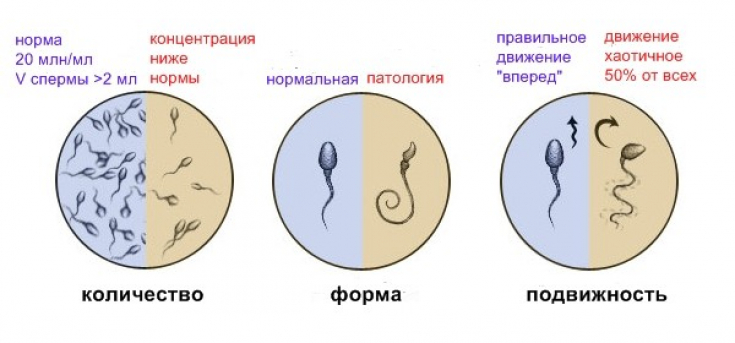Empirical use of medications and nutritional supplements to improve sperm parameters and pregnancy rates in association with idiopathic infertility has reached global proportions, although the evidence base for their use in this regard is controversial.
A systematic analysis of data was conducted comparing the benefits of nutritional and drug support in terms of effects on sperm parameters in men and pregnancy rates in women with idiopathic infertility.
In the article estet-portal.com you can read in detail recommendations for improving sperm parameters based on a meta-analysis of study data.
Influence of nutritional supplements and drugs on the properties of sperm
Literature searched using MEDLINE, Embase, LILACS and the Cochrane Library (searched from January 1, 1990 to September 19, 2017).
61 studies were included (59 randomized controlled trials and 2 non-randomized comparative studies).
The combined results demonstrated that pentoxifylline, coenzyme Q10, L-carnitine, follicle stimulating hormone, tamoxifen and kallikrein resulted in improved sperm parameters:
1. Coenzyme Q10, a dietary supplement that acts as an antioxidant and is commonly used for various heart conditions, was associated with an increase in sperm count, motility and morphology in three of four studies spanning three to six months.

2. Six studies examined dietary supplementation with L-carnitine, an amino acid that promotes fat utilization and energy production. Sperm count and motility seem to improve with L-carnitine, but not sperm size and morphology.
3. Follicle-stimulating hormone (FSH), used by men to stimulate sperm production, was associated with higher pregnancy rates in five studies, but the data were also of low certainty. FSH also appears to improve sperm count and morphology, but not motility.
4. Tamoxifen, prescribed to improve sperm quality, has been associated with improvements in sperm count, motility and morphology, but not with improvements in pregnancy rates.
5. Pentoxifylline, a drug commonly prescribed to improve blood flow, improved sperm count, motility and morphology in three studies spanning three to six months.
6. Kallikrein, an enzyme that improves blood flow, did not improve pregnancy rates but was associated with improved sperm count and motility.
Follow us on Telegram
What is effective for improving the properties of sperm
Some evidence has been found that empiric medical and nutritional supplements can improve sperm parameters. There is very limited evidence that empiric therapy results in better fertility rates, spontaneous pregnancy, or pregnancy with assisted reproductive methods.
The level of evidence for all results was very low, mainly due to methodological weaknesses and inconsistencies in study design. Some results have also been downgraded due to inaccurate results.
Pentoxifylline, coenzyme Q10, L-carnitine, follicle stimulating hormone, tamoxifen and kallikrein appear to improve sperm parameters.
Thank you for staying with estet-portal.com. Read other interesting articles in the "Urology" section. You may be interested in Change in sperm morphology: the cause of male infertility









Add a comment